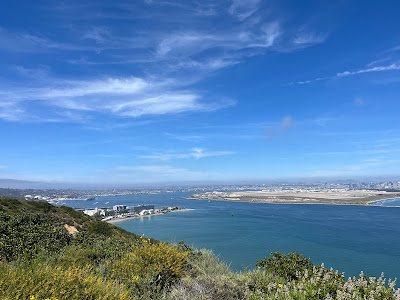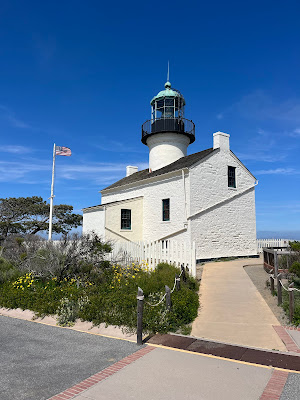We began our last day at Balboa Park in the heart of San Diego. This 1,200-acre urban oasis is home to paths, gardens, golf courses, museums, theaters, restaurants, The San Diego Zoo and more. Opened in the 1870s, it is the second-oldest large, landscaped city park in the U.S.—New York City’s Central Park was established in 1858. Originally called City Park, it was renamed in 1910 after Vasco Nunez de Balboa, the first European to cross the Isthmus of Panama and reach the Pacific Ocean in 1513.
We spent our time strolling the beautiful grounds, exploring the rose and cactus gardens, then had lunch at one of the many restaurants and cafes.
Cabrillo National Monument lies at the southern tip of Point Loma Peninsula at the entrance to San Diego Bay. It was named for Juan Cabrillo, the first European to explore present-day California when he landed here in 1542. Interestingly, records of Cabrillo’s life are scarce and sometimes conflict, and his nationality—Spanish or Portuguese—is still debated by historians.
We had beautiful weather, and the view of the ocean, harbor and skyline was breathtaking. At the summit, there is a visitor’s center, monument and overlook and a path to the Old Point Loma Lighthouse and keeper’s house. The light is no longer in use, as it was often shrouded in fog and low clouds. A new light was installed at a lower elevation in 1891 and the old light was abandoned and eventually restored as a museum.
On our drive along Point Loma we passed a large gathering of U.S. Navy personnel in dress uniforms entering Fort Rosecrans National Cemetery, presumably to pay their respects to a fallen shipmate.
Our last stop before heading to the airport was the Tide Pools along the Pacific Ocean, where the 8.5-foot tidal range covers and uncovers the rocky beaches in a continuously changing scene. The smell of the ocean made us really miss living near the water.
Bonus Question: What does the “QR” in “QR Code” stand for?
Map of Cabrillo National Monument
Bonus Question Answer: The Quick-Response (QR) Code was first used in Japan in 1994 to label automobile parts.











No comments:
Post a Comment